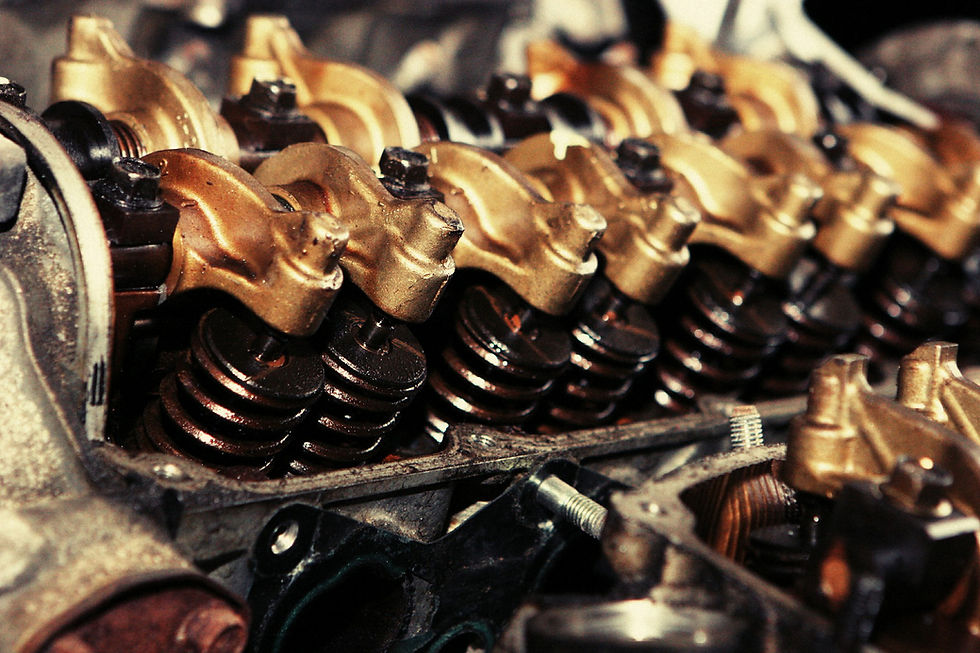Identifying Key Symptoms of a Failing Alternator in Your Vehicle
- Autolast Ghana

- Aug 1, 2025
- 4 min read
An alternator is a crucial component of your vehicle's electrical system, responsible for generating electricity to power the engine and recharge the battery. When an alternator begins to fail, it can lead to a variety of problems, affecting not only the performance of the vehicle but also your safety on the road. Understanding the signs of a failing alternator can help you address issues early on and avoid more costly repairs down the line. In this blog post, we will delve into the key symptoms of alternator problems, ensuring you're well-equipped to identify when your vehicle may be in trouble.
Understanding the Alternator's Role
The alternator converts mechanical energy from the engine into electrical energy, supplying power to various systems within your vehicle, such as the air conditioning, lights, and radio. It also charges the battery while the vehicle is running. Given its importance, any malfunction can lead to significant complications.
As a car owner, knowledge about how your vehicle’s systems work can save you time, money, and trouble.
Dim or Flickering Lights
One of the first signs that might indicate alternator problems is dim or flickering lights inside and outside your vehicle.
When the alternator is malfunctioning, it may not provide a consistent supply of power, leading to fluctuations in voltage. This can affect your headlights and interior lights, causing them to appear dull or flicker unexpectedly.
If you experience these symptoms, it's important to pay close attention. In many cases, addressing alternator issues early can prevent more severe problems from arising later.
A Dead Battery
A failing alternator may not charge the battery effectively, leading to a dead battery.
If your vehicle has trouble starting, or if you frequently find the battery dead after your car has been parked for a while, the alternator could be to blame. Battery issues can often mimic alternator problems, so a thorough diagnostic is necessary to pinpoint the root cause.
Consider checking your battery's age and condition alongside your alternator, as age-related wear can also result in similar symptoms.
Unusual Sounds
A malfunctioning alternator may produce unusual sounds, such as grinding, whining, or rattling noises.
These can be indicators of internal damage or loose components within the alternator. A failing bearing can create a grinding noise, a worn-out belt can produce a whining sound, and rattling may indicate loose parts.
If you notice any of these sounds, it's wise to have your vehicle inspected. Ignoring these indicators can lead to more significant issues that could compromise your vehicle’s operability.
Warning Lights
In many modern vehicles, your dashboard is equipped with warning lights that can notify you of issues with the alternator.
The battery warning light or alternator light may illuminate when there is a problem with the charging system. If you see this warning light come on, it’s an essential signal to investigate further.
Even if the light goes off after momentarily illuminating, it’s advisable to check the system status with a meter or consult a professional.
Electronics Malfunctioning
Another symptom of alternator problems is malfunctioning electronics inside the car.
This could manifest as issues with the radio, navigation system, or power windows. If you experience erratic behavior in these electronic components, it may suggest inconsistent power supply from the alternator.
This issue can be frustrating but can also represent a larger problem, highlighting the necessity for a comprehensive inspection.
Bad Smell
A failing alternator can sometimes produce a burning smell.
This can be caused by overheating components or a malfunctioning alternator belt. When components overheat, they can produce a burnt rubber smell that can be alarming.
If you notice any unusual odors, it's a strong signal to address the issue promptly, as this can lead to more significant damage if left unresolved.
Alternator Belt Issues
The alternator relies on a belt to function correctly. If the belt becomes worn, loose, or damaged, it can affect the alternator's performance.
If you hear squealing noises when you start your vehicle, or if you notice that the battery warning light is illuminated, it might be time to check the belt.
Regular maintenance checks on the belt's condition can help prevent problems related to alternator failure.
Physical Inspection of the Alternator
Sometimes, the most straightforward approach is a visual inspection.
Look for signs of corrosion, frayed wires, or loose connections. These issues can cause alternator problems that may not be immediately apparent.
Ensuring that the alternator and battery terminals are clean and free of corrosion can extend the lifespan of both components.
Conclusion
Being aware of the signs of a failing alternator is essential for any vehicle owner. By recognizing symptoms like dim lights, a dead battery, unusual sounds, and warning lights, you can take proactive measures to diagnose issues early on.
Remember, the alternator is a critical component that plays a significant role in your vehicle's overall performance. Neglecting symptoms can lead to further complications, increased repair costs, and even pose a safety risk while driving.
Regular maintenance and attentive care can significantly reduce the likelihood of encountering alternator issues, ensuring a smooth and reliable driving experience. Always consult with a professional mechanic if you suspect that your vehicle's alternator may be failing, as their expertise can provide you with peace of mind and the right solutions.

With early detection and timely interventions, you can keep your vehicle in optimal working condition for years to come. Don't hesitate to take action if you suspect alternator problems—your vehicle will thank you!




Comments